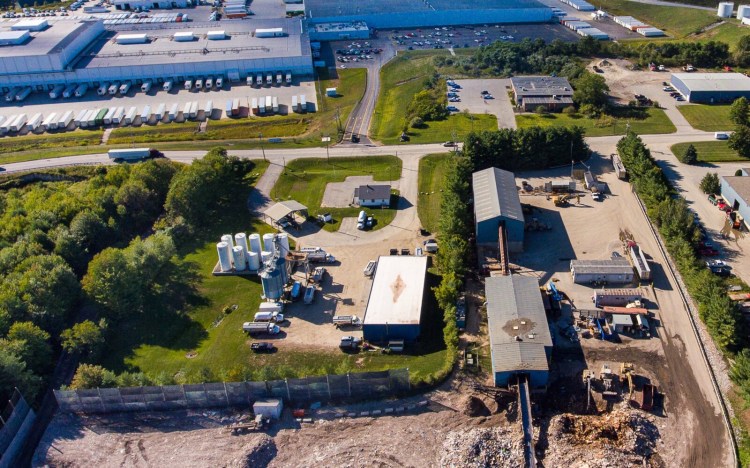Lawmakers plan to take a closer look next year at possible restrictions on out-of-state waste that might force a Lewiston business to shut down if the changes are approved.
Environmentalists are pushing a bill, first discussed last spring, to limit the construction debris hauled into Maine that eventually finds its way to the state-owned Juniper Ridge Landfill in Old Town.
Almost a third of the material dumped in the landfill comes from other states, mostly Massachusetts, and much of it flows through ReSource Waste Services in Lewiston, a facility that sorts through construction and demolition debris to separate out recyclable material.
What it can’t reuse is trucked to the Old Town landfill.
The bill legislators will take up again in January seeks to limit out-of-state waste that can wind up in the landfill, as well as other environmental measures.
The Natural Resources Council of Maine said major legal changes are needed “to prevent Maine from being New England’s dumping ground” and to end the “massive environmental injustice” to landfill neighbors that include the nearby Penobscot Nation.
Abigail Bradford, a Stillwater resident who is the Maine Conservation Alliance’s outreach manager and who lives 8 miles from the landfill, told lawmakers it is, “short-sighted and financially irresponsible” to continue taking in potentially toxic material from other states that have adopted stricter environmental standards.
“The costs incurred from pollution from the site will be large and shouldered by Maine taxpayers for generations to come,” she said.
But, there is also a cost to revising the rules, which were most recently changed less than two years ago.
Lewiston’s economic development director Lincoln Jeffers told legislators the proposed recycling standards in the bill “are uneconomical, unsustainable, and will likely force ReSource out of business.”
Lewiston Mayor Mark Cayer told the Legislature’s Environment and Natural Resources that while the bill is well-intended, it would undermine “the core principles” of one adopted in 2020 and “result in the closure” of ReSource, which he called a “key partner and good neighbor.”
Jeffers said the company has worked for several years to improve its operations, including investing $1.5 million to improve its recycling rate from 60% to 72%, and the state shouldn’t change rules again which the company relied on in its decision-making.
“As we continue with a capital investment that is significant for our small business, it is critical for us to have a stable regulatory environment and to be able to rely on the policy that had been shaped by 18 months of civic engagement by a broad group of interested parties,” said Gregory Leahey, president of ReSource.
He said the company has about 40 employees and supports dozens of others indirectly, including those hauling the material.
Among them are Jason and Crystal Chase, who own the Milo-based Chase Trucking. They told lawmakers they have eight people taking debris to the landfill almost daily from ReSource. Exchange Trucking of Gorham warned it would hire seven fewer drivers if ReSource shut down.
In addition to the jobs that rely on ReSource, the company also pays more than $400,000 annually to the Maine Department of Environmental Protection solid waste fund for the disposal of waste at the landfill, which takes in more than 830,000 tons yearly of everything from construction debris to leather scraps.
Cayer said the Alfred Plourde Parkway firm also offers a direct benefit to the city of about $275,000 annually from services and payments, including taking in without charge the debris from more than 70 “dangerous and abandoned buildings” in the city since 2010. Without ReSource’s help, he said, Lewiston taxpayers would have paid more or have simply had to leave “these hazards” alone.
Backers of the bill, though, say what’s at stake is more important than the fate of a company in Lewiston.
Mali Obomsawin, a Wabanaki activist from Farmington, told lawmakers after listening to the initial debate on the bill last spring that, “all the bargaining and negotiating away of the health and waters of my homeland” is reprehensible.
“I implore you to imagine that this land is your ancestral homeland for the purpose of this issue,” Obomsawin said. “We need to protect our waters and soils from hazardous waste, not open the gates for them to enter the state.”
Send questions/comments to the editors.



